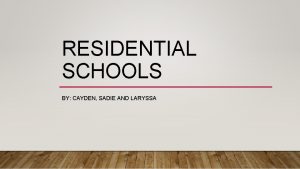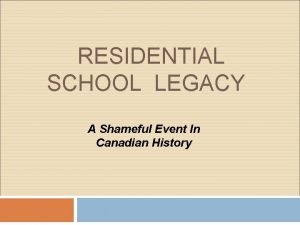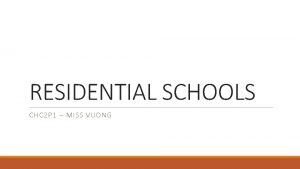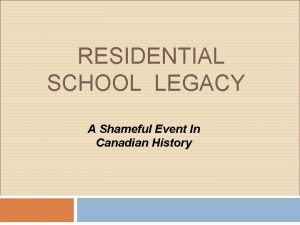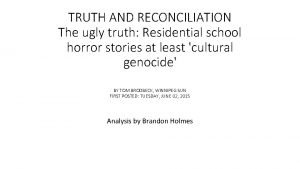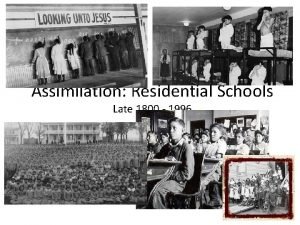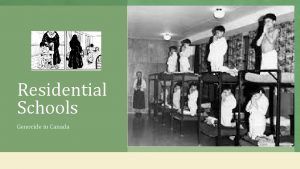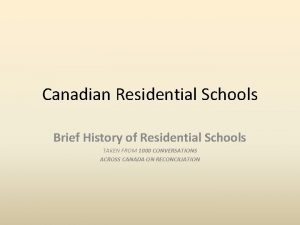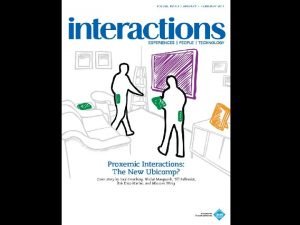Residential Schools Historical Contexts Early residential schools late








- Slides: 8

Residential Schools

Historical Contexts Early residential schools (late 1800 s-early 1900 s) were similar to religious (convents) Later, they were run jointly by Canadian churches and the federal gov’t For a number of years, residential schools became the official Canadian policy for the education of children In every province except N. B. , PEI and Nfld.

Shubenacadie school – 1929 Closed in 1966 – over 1000 children attended from Atlantic Canada boys & girls were separated Usually sent by local Indian agent, or sometimes by their families Teaching & learning was based on European concepts (contrary to Mi’kmaq teaching styles of observation of elders and natural surroundings)

Cultural values and norms were no longer passed down to the child from the elders, which were critical for the identity of native children

Residential Schools Punishments For failing a test: No food for a day For not working hard enough: 4 hours of extra work (in school or garden) For disobedience, and rude or disorderly conduct: no food or water for a day, a beating (with a stick on the back), extra garden work

For speaking native language: (first offense) no supper, (second offence) no supper and a beating, (third offence) considered disobedience and punished as such For going off by yourself (without another student present): several hours of kneeling alone on a rock floor where all can see There are many similarities between these punishments and the treatment received by prisoners-of-war

Effects of Residential Schools on native Families Disrupted transmission of beliefs, skills, and knowledge to youth Separated children from families Prevented them from speaking their language and learning their culture and traditions Reflected mainstream racist views

Left individuals in much pain-in certain schools the conditions were physically, psychologically, and spiritually unhealthy Left without proper education or skills to fit into the mainstream society or their own communities Long-term problems with abuse (those who were abused by stronger adults can become abusers themselves as adults), self-esteem, and good parenting techniques

